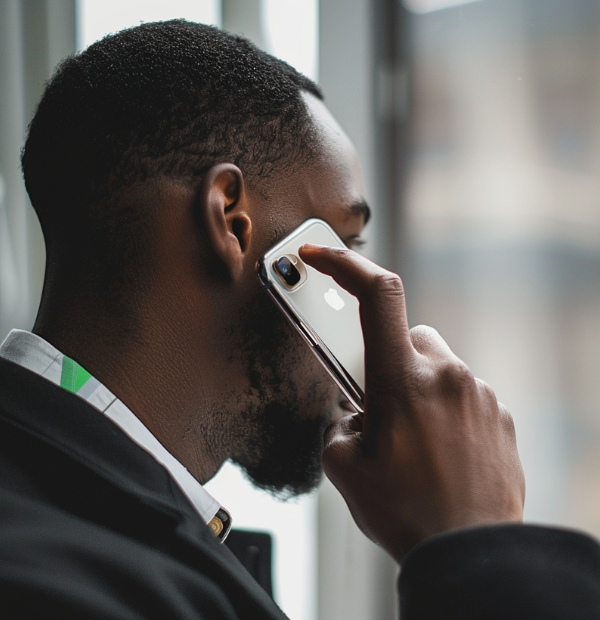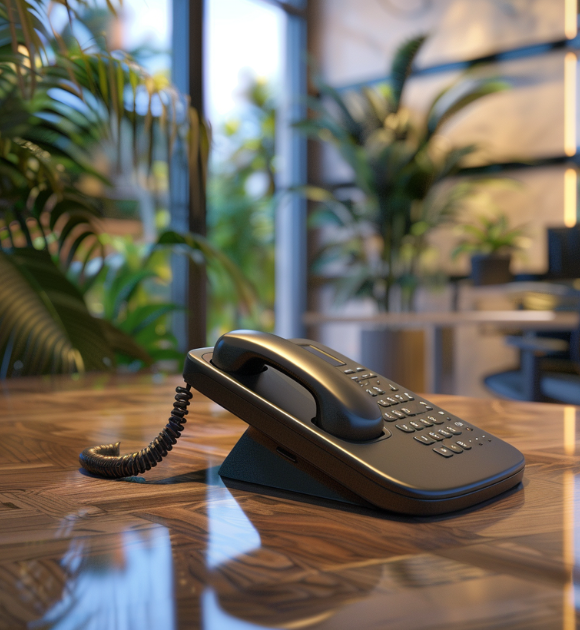Proper Phone Manners: A Guide for the Modern Man
Phone manners are essential in today’s digital age, where communication primarily takes place through phone calls. Proper phone etiquette not only creates a positive impression but also enhances effective communication and shows respect and professionalism. A guide outlining the importance of phone manners and offering tips for appropriate phone behavior in various settings can greatly benefit individuals in navigating the modern world of phone communication.
Understanding why phone manners are important is crucial. It helps in creating a positive impression, whether it’s during a personal call, a business call, or a job interview. Good phone manners reflect your professionalism and respect for the person on the other end of the line. Proper phone etiquette enhances communication by ensuring clarity, active listening, and avoiding interruptions. It helps in conveying your message effectively and understanding the other person’s viewpoint.

The basic phone etiquette includes guidelines for answering calls, making calls, and leaving voicemails. These practices ensure that you handle phone conversations courteously and professionally. Appropriate phone behavior in social settings, such as public places and gatherings, is important to maintain respect for others and avoid distractions.
Effective communication on the phone is another aspect of phone manners that requires attention. Speaking clearly and calmly, practicing active listening, and avoiding interruptions are key components of successful phone conversations. These skills help in establishing rapport and ensuring that both parties understand each other.
Phone manners also play a significant role in the workplace. Maintaining a professional tone and language, notifying and explaining delays, and properly ending phone conversations are essential for maintaining professionalism and building strong working relationships.
For individuals working in customer service roles, phone manners are particularly crucial. Showing empathy and patience, resolving issues professionally, and ensuring customer satisfaction are essential skills in providing exceptional customer service.
By following proper phone manners, individuals can navigate phone communication with ease and professionalism. The guidelines mentioned in this guide serve as a starting point for mastering phone etiquette in various settings. There are additional resources available to further enhance your understanding and proficiency in phone manners.
Key Takeaways:
- Phone manners create a positive impression: Proper phone etiquette helps in creating a positive image and impression of oneself, both personally and professionally.
- Phone manners enhance communication: Following phone manners leads to effective and efficient communication, ensuring messages are conveyed clearly and understood correctly by both parties.
- Phone manners demonstrate respect and professionalism: Displaying good phone manners portrays respect for others’ time and demonstrates professionalism in all phone interactions.
Why Are Phone Manners Important?
In today’s digital age, phone manners are more important than ever. From creating a positive impression to enhancing communication, and showing respect and professionalism, mastering phone manners can have a profound impact on both personal and professional relationships. So why exactly are phone manners so crucial? Let’s dig in and explore the significance of phone manners and how they shape our interactions in the modern world.
Creating a Positive Impression
Creating a positive impression on the phone is crucial for effective communication and building professional relationships. Here are some key aspects to consider:
1. Answer the phone promptly: Respond to calls in a timely manner to show respect and professionalism. Answer within the first two rings.
2. Greet with enthusiasm: Start the conversation with a friendly and positive greeting. Use a clear and welcoming tone to make the caller feel valued.
3. Identify yourself: State your name and the company or department you represent to establish credibility and trust. This also helps the caller know they’ve reached the right person.
4. Listen actively: Pay full attention to the caller’s needs and concerns. Avoid interrupting and ask clarifying questions to ensure understanding.
5. Speak clearly and confidently: Articulate your words clearly and maintain a steady pace. Use a confident tone to inspire trust and professionalism.
6. Use polite language: Choose respectful and professional words throughout the conversation. Avoid jargon or acronyms the caller may not understand.
7. Express appreciation: Show gratitude for the caller’s time and express willingness to assist them. Thank them for their patience if any delays or complications arise.
8. End the call courteously: Conclude conversations with a friendly closing, such as “Thank you for calling” or “Have a great day.” Ensure all queries have been addressed.
9. Follow up if necessary: If you promised any follow-up actions, fulfill them promptly. This demonstrates reliability and commitment to providing excellent service.
Enhancing communication is vital, particularly when it comes to phone manners.
By implementing effective techniques, individuals can ensure that there is a clear understanding and a smooth conversation.
One way to enhance communication is by speaking clearly and calmly.
This approach allows the recipient to grasp information without any confusion. Proper enunciation and maintaining a steady pace help prevent any misunderstandings.
Active listening is also a crucial component in enhancing communication. It demonstrates the value placed on the other person’s input and their perspective. Verbal cues such as “I see” or “I understand” acknowledge their message and show that their thoughts are being heard.
Avoiding interruptions is another vital aspect. Allowing the other person to fully express their thoughts demonstrates respect and helps maintain focus. Interrupting can easily lead to misunderstandings and breakdowns in communication.
Showing Respect and Professionalism

Showing respect and professionalism in phone conversations is crucial. It is important to treat every phone conversation with courtesy and professionalism. When answering or making a call, speak clearly and use polite language to display respect and create a positive impression. Active listening is also essential in phone conversations as it demonstrates that you value the other person’s thoughts and opinions. Avoid interrupting and give your full attention.
Follow basic phone etiquette guidelines such as not talking loudly or using inappropriate language. This demonstrates professionalism and respect for others. When scheduling phone calls or conference calls, be punctual and reliable. If there are any delays or changes, promptly notify the other person. This shows respect for their time and helps to build trust and credibility.
When ending a phone conversation, do so politely and professionally. Thank the person and show appreciation for their input. This leaves a positive impression and shows respect for their participation. Showing respect and professionalism in phone conversations enhances communication, builds relationships, and contributes to creating a professional and respectful work environment.
Basic Phone Etiquette

Are you tired of being greeted by awkward phone conversations? In the world of modern communication, having basic phone etiquette is crucial. Get ready to learn the ins and outs of proper phone manners in this section. We’ll dive into the sub-sections of answering calls, making calls, and voicemail etiquette, providing you with the tips and tricks you need to navigate phone conversations with ease. Say goodbye to phone faux pas and hello to polished communication skills!
Answering Calls
When answering calls, it is important to follow proper phone etiquette to create a positive impression and enhance communication. By answering calls promptly, you can show respect for the caller’s time and professionalism, while also demonstrating your readiness to assist. It is essential to politely greet the caller and identify yourself or your company in a clear and friendly tone. This helps establish a positive connection right from the start.
While on the call, it is crucial to listen attentively to the caller’s needs or concerns without interrupting. Give them your full attention for effective communication. When speaking, make sure to speak clearly and calmly, enunciating your words for better understanding. It is recommended to use concise and professional language to convey your message.
If necessary, don’t hesitate to ask for clarification. If the caller’s request or information is unclear, politely seek further details to avoid any misunderstandings. Once you have a clear understanding, promptly provide assistance or relevant information. Be knowledgeable and prepared to address the caller’s needs.
Utilize active listening skills to show the caller that you value their input. Summarize their points to ensure mutual understanding. If you need to transfer the call or place the caller on hold, remember to ask for permission politely. Briefly explain the reason for the transfer or hold time.
End the call professionally by thanking the caller for their time and offering assistance with any further inquiries they may have. By following these steps when answering calls, you can ensure effective communication and leave a positive impression on callers.
Making Calls
Making calls involves preparation, active listening, clear communication, and respect for the other person’s time. Follow these steps for productive and professional phone conversations:
-Prepare your message: Organize your thoughts and determine the purpose of the call. Be clear about what you want to say and any questions you need to ask.
-Check the contact information: Ensure you have the correct phone number and any necessary extensions or codes. Double-check the spelling of the person’s name if applicable.
-Find a suitable location: Choose a quiet place without distractions or background noise.
-Introduce yourself: State your name and the reason for your call politely and concisely.
-Listen actively: Pay attention and avoid interrupting. Ask clarifying questions if necessary.
-Speak clearly: Enunciate your words and speak at a moderate pace with a confident and friendly tone.
-Respect the person’s time: Keep the conversation brief and to the point. If it requires more time, politely ask if it would be convenient to continue or schedule another call.
-Summarize and confirm: Before ending the call, summarize the main points discussed and ensure clarity on any actions or next steps.
-End the call courteously: Thank the person and express appreciation for their assistance, if applicable. Conclude the call on a positive note.
-Follow up if necessary: Fulfill any promised follow-up tasks or provide additional information promptly.
Remember, by following these steps, you can have productive and professional phone conversations.
Voicemail Etiquette
When it comes to voicemail etiquette, follow these guidelines for effective communication and professionalism:
- Keep the message concise. State your name, contact information, and the purpose of your call.
- Speak clearly and slowly. Enunciate your words and avoid mumbling for better understanding.
- Provide relevant information. If returning a call, mention the date, time, and any necessary details.
- Maintain a friendly and professional tone. Use appropriate enthusiasm or concern based on the call’s nature.
- Avoid interruptions or distractions in the background. Find a quiet location without noise or distractions.
- Leave contact information at the end. Include your phone number and any relevant details.
- Conclude with a polite closing and willingness to assist further if needed.
Following these voicemail etiquette guidelines ensures clear, professional, and respectful messages that value the recipient’s time.
Appropriate Phone Behavior in Social Settings

In today’s modern world, mastering proper phone manners is essential, especially when it comes to social settings. Let’s dive into the dos and don’ts of phone behavior in public places and explore the nuances of using our phones respectfully in restaurants and gatherings. So, whether you’re out and about or attending social events, understanding appropriate phone usage is key to maintaining social decorum and respectful interactions.
Phone Usage in Public Places
When using your phone in public, it is vital to be mindful and respectful of those around you. Here are some guidelines to follow:
1. Avoid talking loudly on the phone. Keep your voice at a moderate level so that only the person you are speaking to can hear you.
2. If you need to make or answer a call, step away from crowded areas or find a quiet corner. This shows respect for those around you.
3. Be aware of your surroundings and prioritize your safety when using your phone in public. Avoid getting too engrossed in your conversation.
4. Avoid using speakerphone in public places to prevent intrusive conversations that others may not want to hear.
5. If you need to use your phone for a long time in public, consider using headphones or earbuds. This allows you to hear better and keep your conversation private.
6. Silence your phone or put it on vibrate mode in quiet settings like libraries, cinemas, or theaters. This prevents unnecessary disruptions.
7. Respect any posted restrictions on phone usage in establishments or venues. Some places may have specific rules or policies regarding phone usage.
By following these guidelines, you can ensure that your phone usage in public places is respectful and considerate of those around you.
Phone Usage in Restaurants and Gatherings
Phone usage in restaurants and gatherings should be respectful and mindful of others. Here are some guidelines to follow:
1. Avoid using your phone at the table: Refrain from using your phone unless necessary. Engage in meaningful conversations and give full attention to those around you.
2. Keep your phone on silent: Put your phone on silent or vibrate mode to prevent disruptions.
3. Excuse yourself for phone calls: Politely excuse yourself from the table or gathering to take important phone calls.
4. Limit your phone usage: Use your phone for emergencies or urgent matters only. Constantly checking or engaging in lengthy conversations can be disrespectful.
5. Be aware of your surroundings: Avoid talking loudly or engaging in conversations that might disturb others.
Remember, practicing good phone manners in restaurants and gatherings shows respect and allows everyone to enjoy their time together without distractions.
Effective Communication on the Phone

When it comes to effective communication on the phone, speaking clearly and calmly is key. Active listening and avoiding interruptions are equally important for a smooth phone conversation. So, let’s dive deeper into honing our phone manners in this section. From tips on how to articulate your words to the art of staying fully engaged in a conversation, we’ll explore the essential elements of effective phone communication. Get ready to enhance your phone skills and make a lasting impression!
Speaking Clearly and Calmly
1. Speak slowly and enunciate clearly. Speaking clearly helps others understand you and reduces the need for repetition or clarification.
2. Use a moderate volume. Speaking softly can make it hard for others to hear you, while speaking loudly can be aggressive or rude. Find a balance so you can be heard without causing discomfort.
3. Take deep breaths and stay calm. When nervous or agitated, it can affect your voice. By breathing deeply and remaining calm, you can project confidence and clarity in your speech.
4. Avoid mumbling and speak with confidence. Mumbling or speaking hesitantly can make it hard for others to understand you. Speak with conviction and use a confident tone to project confidence in your speech.
5. Pace your speech appropriately. Speaking too quickly can make it hard for others to follow, while speaking too slowly can be tedious. Find a comfortable pace for clear communication.
6. Pay attention to your tone of voice. A pleasant tone enhances communication and creates a positive interaction. Avoid sounding angry, confrontational, or dismissive on the phone.
7. Practice active listening. When you listen attentively, it shows respect and allows for a smoother conversation. Avoid interrupting and provide appropriate responses or acknowledgments when necessary.
8. Use appropriate language and avoid slang or jargon. Speak professionally and politely, using language that is easily understood by all parties involved.
9. End the conversation politely. When ending a phone call, thank the person for their time and provide any necessary follow-up information. Avoid abrupt hang-ups or rushing to end the call without proper closure.
Active Listening
Active listening, a crucial aspect of effective communication on the phone, involves giving complete attention to the speaker, understanding their message, and responding appropriately. To maintain focus during a phone conversation, it is important to avoid distractions and give the speaker your undivided attention. By doing so, you can fully comprehend their message and respond accurately.
Another key element of active listening is displaying empathy towards the speaker. This means acknowledging and understanding their feelings and emotions. By expressing empathy, you create a supportive and comfortable environment for the speaker to share their thoughts.
Active listening also involves using verbal and non-verbal cues to show engagement. Nodding, maintaining eye contact, and using affirmative phrases like “I understand” or “Yes, please go on” encourage the speaker to continue sharing their thoughts.
Summarizing and paraphrasing the speaker’s words demonstrates active listening and understanding. This helps clarify any misunderstandings and keeps the conversation on track.
By practicing active listening, you can enhance communication on the phone, build rapport, and foster a positive and productive conversation. It leads to improved relationships and outcomes. So remember to be attentive, empathetic, and responsive during phone conversations.
Avoiding Interruptions
Avoiding Interruptions is important for phone etiquette and communication professionalism. Here are strategies to consider:
- Minimize distractions: Find a quiet location to focus on the conversation without interruptions. Put your phone on silent mode or vibrate to avoid disruptive noises.
- Listen actively: Pay attention and avoid interrupting the speaker. Let them finish their thoughts before responding. Active listening shows respect and helps avoid interruptions.
- Take turns speaking: Wait for a natural pause before speaking. Interrupting can disrupt the flow and cause confusion. Give others the opportunity to express themselves fully before interjecting.
- Use non-verbal cues: Use gestures or eye contact to signal your intention to interrupt or interject. This allows the speaker to acknowledge your input without feeling interrupted.
- Be mindful of time: Avoid lengthy monologues. Respect the other person’s time by being concise. If you need more time, politely ask and wait for their response.
- Use technology wisely: Avoid multitasking or engaging in unrelated activities during the conversation. Focus on the conversation for effective communication.
By following these guidelines, you can avoid interruptions and create a productive and respectful phone communication experience.
Phone Manners in the Workplace

When it comes to phone manners in the workplace, it’s crucial to strike the right balance between professionalism and effective communication. In this section, we’ll dive into the essential aspects of maintaining a professional tone and language during phone conversations. We’ll also explore the importance of properly notifying and explaining delays, as well as the art of gracefully ending phone conversations. Stick around to discover practical tips that will help you navigate phone interactions with finesse and leave a positive impression.
Professional Tone and Language
Maintaining a professional tone and language is crucial when communicating over the phone. It is essential to enhance effective communication and create a positive impression. Here are some key points to consider regarding professional phone etiquette:
- Use clear and concise language: It is important to articulate your words clearly and avoid excessive jargon or technical terms. This ensures understanding and prevents confusion.
- Speak politely and respectfully: Showing respect by using polite language and a courteous tone is crucial. It is important to avoid slang or offensive language, as it can create a negative impression and damage professional relationships.
- Maintain a professional demeanor: Your tone and language convey professionalism. It is important to speak calmly and composedly, even in difficult situations. This helps build trust and credibility.
- Use proper grammar and pronunciation: Paying attention to grammar and pronunciation is vital. Using correct grammar and enunciating words properly promotes effective communication and avoids misunderstandings.
- Adapt language to the situation: Adjusting your language and tone according to the level of formality required in different phone conversations is important. Adapting demonstrates professionalism and respect, whether you are speaking with a colleague, supervisor, or client.
By maintaining a professional tone and language during phone conversations, you can ensure clear and effective communication. This leaves a positive impression and cultivates strong professional relationships. Always be mindful of the impact your words can have.
Notifying and Explaining Delays
I apologize for the delay. There has been a delay. There was an unexpected issue with the shipment. We anticipate the issue will be resolved within the next 24 hours. In the meantime, we can offer you a temporary solution.
We understand that this delay may be frustrating for you. By following these steps, you can effectively notify and explain delays, ensuring clear communication and maintaining a respectful and professional relationship with the person you are speaking to.
Properly Ending Phone Conversations
To properly end phone conversations and ensure professional and courteous conclusions, follow these steps for properly ending phone conversations:
1. Express gratitude: Thank the person for their time and the conversation. Show appreciation for their input and engagement.
2. Confirm next steps or follow-up: Reiterate any action items or next steps discussed during the conversation. Make sure both parties are clear on what needs to be done next and any necessary follow-up.
3. Summarize the discussion: Briefly recap the main points of the conversation to ensure shared understanding. This helps both parties remember key details and prevents any misunderstandings.
4. Close with a friendly farewell: End the conversation on a positive note. Use phrases like “It was great talking to you” or “Looking forward to speaking with you again soon.” This leaves a pleasant impression and maintains a friendly rapport.
5. Properly hang up the phone: Politely end the call without being abrupt or disrespectful. Use phrases like “Thank you again for your time” or “Have a wonderful day.” This shows respect and leaves a good final impression.
By following these steps, you can effectively end phone conversations and build strong relationships through proper phone etiquette. Remember, incorporating these practices ensures that phone conversations end appropriately and positively.
Phone Manners for Customer Service
In the realm of proper phone manners, one crucial area to master is customer service. It’s all about creating positive connections and handling issues with finesse. In this section, we’ll delve into the art of showing empathy and patience, as well as mastering the art of resolving issues professionally. Get ready to discover techniques that will elevate your customer service game to new heights, leaving callers impressed and satisfied.
Showing Empathy and Patience
Showing empathy and patience is crucial in phone manners. It helps build rapport, understand the caller’s perspective, and resolve issues effectively.
-Listen actively: Pay full attention to the caller’s concerns without interrupting. Offer empathetic responses like “I understand” or “I can imagine how frustrating that must be.”
-Validate feelings: Acknowledge and validate the caller’s emotions by saying things like “I can see why you would feel that way” or “I appreciate your patience in this situation.”
-Show understanding: Demonstrate empathy by putting yourself in the caller’s shoes and responding with phrases like “I would feel the same way if I were in your position” or “I can understand why you’re upset.”
–Patience in explanations: Remain calm and patient when providing information or instructions. Take the time to explain things clearly and thoroughly. Use simple language and ask if they have any questions.
-Avoid rushing: Give the caller sufficient time to express their concerns or provide the necessary information. Avoid rushing them, and if necessary, offer reassurance that you have dedicated time to address their needs.
-Maintain a positive tone: Use a friendly and soothing tone of voice throughout the call. It can help ease tensions and convey empathy towards the caller’s situation.
By incorporating these practices, you can effectively demonstrate empathy and patience during phone conversations, ensuring a positive experience for both you and the caller.
Resolving Issues Professionally

– When resolving issues professionally, it is important to listen to the customer’s concerns without interruption.
– Show empathy and understanding towards the customer’s situation to effectively resolve issues.
– Sincerely apologize for any inconvenience caused and acknowledge the customer’s frustration in a professional manner.
– Take ownership of the issue and assure the customer that a solution will be found in a professional manner.
– Ask clarifying questions to gather all relevant information about the problem and handle it professionally.
– Offer options or solutions, considering company policies and guidelines, to professionally resolve the issue.
– Explain the pros and cons of each solution to help the customer decide in a professional manner.
– Remain patient and calm, even if the customer becomes upset or angry, while professionally resolving the issue.
– Keep the customer informed about the progress of resolving their issue in a professional manner.
– Follow through on promises or commitments made to the customer while professionally resolving the issue.
– Document the details of the issue and the steps taken to resolve it in a professional manner.
– Ensure customer satisfaction before ending the conversation by professionally resolving the issue.
– Offer assistance or additional support to prevent future issues in a professional manner.
– Thank the customer for their patience and understanding in a professional manner.
By following these steps, you can professionally resolve issues and maintain a positive customer experience.
Additional Resources
When it comes to learning phone manners, having additional resources can provide guidance and tips. Here are valuable resources to enhance your phone etiquette:
– Books: Several books delve into phone manners and communication skills. “Phone Etiquette: The Essential Guide” by Sarah Lewis and “Mastering Phone Etiquette for Success” by Karen Friedman are recommended reads.
– Online Courses: Taking an online course can improve phone manners. Platforms like Coursera and Udemy offer courses on effective phone communication and etiquette.
– Podcasts: Listening to podcasts can help you learn on the go. “The Art of Charm” and “The Public Speaker’s Quick and Dirty Tips for Improving Your Communication Skills” cover various aspects of communication, including phone etiquette.
– Websites: Numerous websites provide articles, guides, and videos on phone manners. Visit sites like themuse.com or etiquetteexpert.com for helpful tips and advice.
– Workshops and Seminars: Look for local workshops or seminars that focus on improving communication skills. These events often cover phone etiquette and provide interactive learning experiences.
By utilizing these additional resources, you can cultivate proficiency in phone manners and effectively communicate in professional and personal situations.
Frequently Asked Questions
What are some key tenets of proper phone manners?
Proper phone manners include giving others your full attention during conversations, refraining from using your phone in intimate settings, and avoiding excessive talking or ringing volume. It also means using good judgment when it comes to social media posts and refraining from using vulgar ringtones.
Are there any exceptions to not using your phone in certain situations?
Yes, there are exceptions to this rule. For example, doctors, nurses, first responders, and those expecting emergency calls may need to keep their phones on and answer important calls. It is polite to excuse yourself quietly and calmly from the gathering if you need to accept an emergency call.
How should I handle missed calls, texts, or emails?
When you miss a call, text, or email, it is important to respond promptly and apologize for missing the message. This shows respect for the person trying to reach you and helps maintain good communication.
What is the 10-foot rule in cell phone etiquette?
The 10-foot rule suggests that when making or taking a call, you should move at least 10 feet away from the building or room you stepped away from. This helps avoid disturbing others and gives you privacy during the conversation.
Can I use my cell phone while driving?
It is important to avoid talking on your phone while driving as it is a dangerous distraction. If available, use hands-off options like Bluetooth to make and receive calls while keeping your hands on the wheel and eyes on the road.
How can I avoid becoming overly reliant on my cell phone?
Cell phone addiction is a real issue, and it is important to develop good habits and not let your phone control your life. Make a conscious effort to focus on tasks and engage in face-to-face conversations without constantly checking your phone for distractions.

